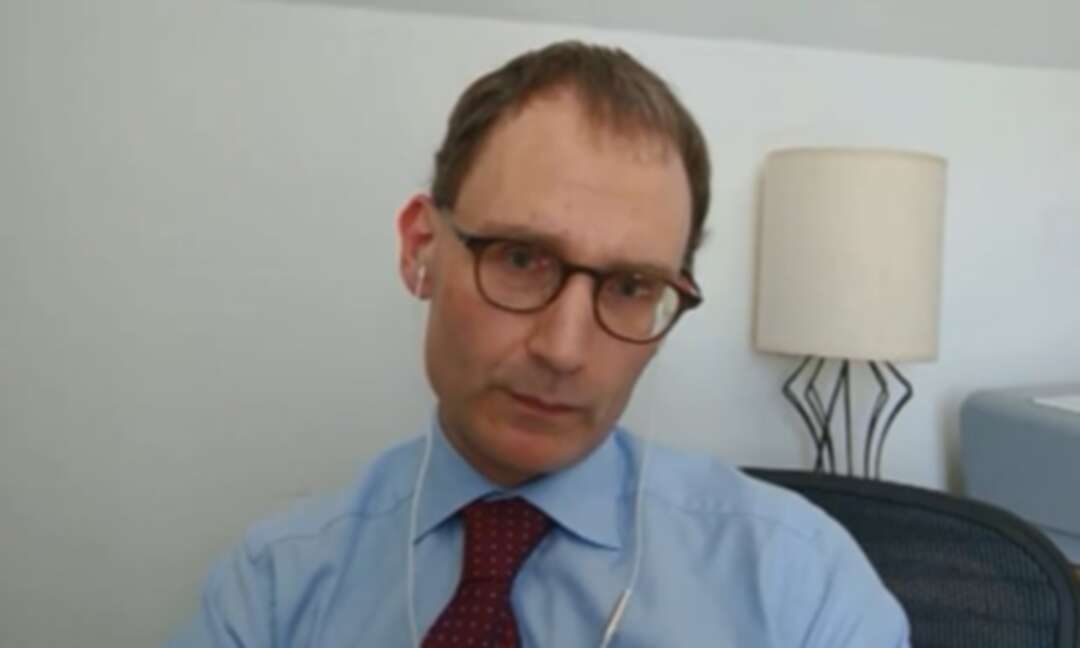-
England's current lockdown could be the last, says Neil Ferguson

Expert says growing Covid immunity means England could be in tier 1 or 2 measures by May
The scientist whose data modelling led to the first UK lockdown has expressed hope that the current lockdown could be the last.
Prof Neil Ferguson, who advises the government as part of the New and Emerging Respiratory Virus Threats advisory group (Nervtag), said the nation was “in a better place than I might have anticipated a month ago”.
He told Politico’s Westminster Insider podcast: “The lockdown has really driven down cases quite fast. They’re basically halving about every 17 days at the moment or so, and that means in a month’s time – the prime minister’s talked about potentially reopening schools – we might have some bandwidth to do that, at least primary schools.
“And if we continue to see then a continued decline without large outbreaks, then perhaps starting to relax other aspects of society the following month.”
Boris Johnson is due to set out a roadmap for easing England’s lockdown in the week starting 22 February, with 8 March earmarked for a wide reopening of schools.
Ferguson said that if the situation played out according to the best estimates, much of England could be in the equivalent of tier 2 measures by May, and areas with very low incidence in tier 1.
He said the UK was starting to enter a phase where a large proportion of the population were immune to the virus. He estimated that up to a third of the population could have been infected, and added to that number are the people who have received the Covid jab. He said the vaccine coverage among the over-70s was “better than I could have hoped for”.
Ferguson cautioned that it would be “a bumpy road” and he would be “a fool to try and predict out six months”, he but said he believed the vaccines would start allowing for restrictions to be eased.
However, he echoed other scientists in cautioning that social distancing measures must be relaxed slowly in order to prevent another surge in infections.
“I’m hopeful it will be the final lockdown, so long as we are relatively cautious in coming out of this lockdown,” he said. “If we relax too quickly without seeing the effect of each stage of relaxation, we may do what we’ve done before and relax too much, see a surge in case numbers, and still need to tighten up measures again.”
He said it was highly unlikely the virus would ever be eradicated and it would continue to cause hospitalisations and deaths, but these could be driven to a much lower level – as with influenza – by immunisation, making it what he called a “manageable prospect”.
Ferguson said it was his “fervent hope” that by this time next year the country would be “basically back to normal”, without any significant degree of the current controls in place, although it partly depended on what was going on in the rest of the world.
There has been some confusion over when precisely Johnson will detail the roadmap for easing restrictions. Johnson and other ministers have variously committed to detail the plan on 22 February or during the week that follows.
On Friday the Home Office minister Victoria Atkins told Sky News: “On 22 February the prime minister will make a statement to the House of Commons where he will set out our roadmap to ease lockdown.”
source: Haroon Siddique
Levant
You May Also Like
Popular Posts
Caricature
BENEFIT Sponsors BuildHer...
- April 23, 2025
BENEFIT, the Kingdom’s innovator and leading company in Fintech and electronic financial transactions service, has sponsored the BuildHer CityHack 2025 Hackathon, a two-day event spearheaded by the College of Engineering and Technology at the Royal University for Women (RUW).
Aimed at secondary school students, the event brought together a distinguished group of academic professionals and technology experts to mentor and inspire young participants.
More than 100 high school students from across the Kingdom of Bahrain took part in the hackathon, which featured an intensive programme of training workshops and hands-on sessions. These activities were tailored to enhance participants’ critical thinking, collaborative problem-solving, and team-building capabilities, while also encouraging the development of practical and sustainable solutions to contemporary challenges using modern technological tools.
BENEFIT’s Chief Executive Mr. Abdulwahed AlJanahi, commented: “Our support for this educational hackathon reflects our long-term strategic vision to nurture the talents of emerging national youth and empower the next generation of accomplished female leaders in technology. By fostering creativity and innovation, we aim to contribute meaningfully to Bahrain’s comprehensive development goals and align with the aspirations outlined in the Kingdom’s Vision 2030—an ambition in which BENEFIT plays a central role.”
Professor Riyadh Yousif Hamzah, President of the Royal University for Women, commented: “This initiative reflects our commitment to advancing women in STEM fields. We're cultivating a generation of creative, solution-driven female leaders who will drive national development. Our partnership with BENEFIT exemplifies the powerful synergy between academia and private sector in supporting educational innovation.”
Hanan Abdulla Hasan, Senior Manager, PR & Communication at BENEFIT, said: “We are honoured to collaborate with RUW in supporting this remarkable technology-focused event. It highlights our commitment to social responsibility, and our ongoing efforts to enhance the digital and innovation capabilities of young Bahraini women and foster their ability to harness technological tools in the service of a smarter, more sustainable future.”
For his part, Dr. Humam ElAgha, Acting Dean of the College of Engineering and Technology at the University, said: “BuildHer CityHack 2025 embodies our hands-on approach to education. By tackling real-world problems through creative thinking and sustainable solutions, we're preparing women to thrive in the knowledge economy – a cornerstone of the University's vision.”
opinion
Report
ads
Newsletter
Subscribe to our mailing list to get the new updates!





















